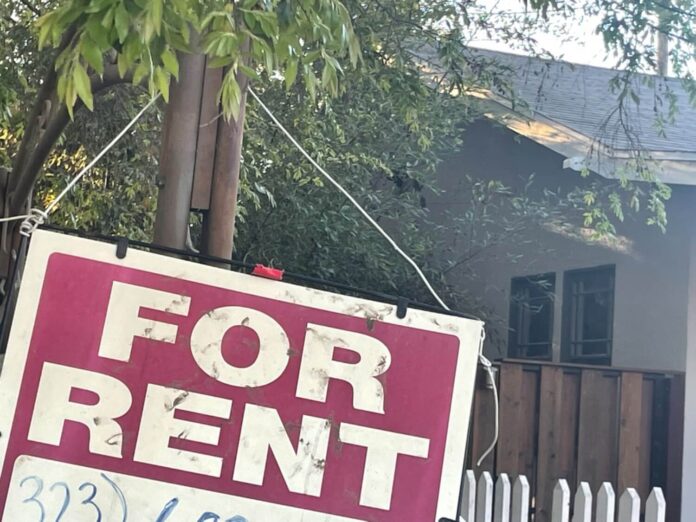With the end of the COVID-19 pandemic eviction moratorium coming in March, the LA City Council finalized new tenant protections Feb. 7, according to the LA Times.
“Just cause” eviction rules limit the reasons for which a tenant can be evicted, and that protection has already gone into effect. Another added protection is that a tenant cannot be evicted for nonpayment until they are more than a month of fair market rent behind in their payment — this will go into effect at the end of March. Additionally, a new protection that will go into effect at the end of March will be that landlords must pay relocation fees if they raise their rents by more than 10 percent or five percent plus inflation, and their tenants decide to move, according to the LA Times.
Anthony Carfello, who works with the LA Tenants Union, said that while the protections are positive, he is unsure whether they will be extremely effective in supporting tenants and reducing evictions. The new threshold for how much rent a tenant has to owe before eviction, he said, should be in place, but it is not enough.
“I would call [the rent threshold] like a neutral good,” Carfello said. “It’s a good thing. But most of the people who are worried about the debt that is resulting from rent, always being due through the entire pandemic period, are facing much larger amounts.”
Carfello said that for many of the tenants he works with, their situations have not changed enough after most pandemic restrictions were lifted to secure their financial stability under the new regulations.
“If COVID damaged your income and your living situation enough that you ended up that much in debt, you’re not gonna be able to just find that money. So there still is the strong potential of eviction,” Carfello said. “In my opinion, it’s not directly addressing of the threat of all these evictions, per se.”
He said that with debt hanging over tenants, landlords can still put pressure on tenants to get around new rules.
“We also know tenants where the landlords have already approached them with the idea of, ‘Hey, you owe this much debt, but I’ll get rid of it if you leave tomorrow,’” Carfello said.
Carfello also said that for the most part, the new restrictions will add steps for landlords, but will not actually prevent evictions.
“It’s another hurdle put in front of hurdlers,” Carfello said. “But it’s not anything that stops that process.”
Ahoura Vahedi, who owns multi-unit rentals in LA that are all already regulated by the 1979 Rent Stabilization Ordinance, said that he sees these new policies as in line with city precedent.
“I think it’s just fair, because now everybody plays by the same rules,” Vahedi said. “Consistency is not a bad idea.”
Vahedi said he felt the eviction moratorium during COVID-19 put an undue burden on landlords. He said he felt that other human needs, like food and medicine, were not regulated in the same way that housing was.
“I think the policy should have been fair across the board, not put all the burden on just one sector of the population,” Vahedi said.
Frank Lopez, who owns four properties in LA, said that he lost two years worth of rent from a tenant in Boyle Heights. Lopez said the tenant received a check to help pay back his accumulated rent, but the tenant disappeared with the money.
Lopez said that after what he went through, he does not agree with the eviction moratorium, and the new rules being put in place.
“I mean, for the few people that it really does make an impact, it makes sense,” Lopez said. “But there are a lot of people… that just take advantage of it.”
Lopez said the loss of income had a large impact on his family — him, his wife who works as a teacher’s assistant in Glendale, and their four children.
“I’m not a big company,” Lopez said. “I mean, it makes a big difference for us. I mean, the bank is not going to wait.”
Carfello said that not all landlords are the kind of struggling ‘mom and pop’ small-scale landlord that a person may think of.
According to Carfello, the closely linked issues of tenant protections and homelessness are all too often treated as separate. He said he feels that to avoid waves of evictions and protect tenants, existing debt will need to be dealt with. He said that the way we think about tenant rights needs to change.
“This is a thing that is a human need,” Carfello said. “Fighting over it and treating it only as a business is part of how we got to the problem that we’re in.”
Contact Mostyn Trudinger-Smith at mtrudingersm@oxy.edu
![]()































